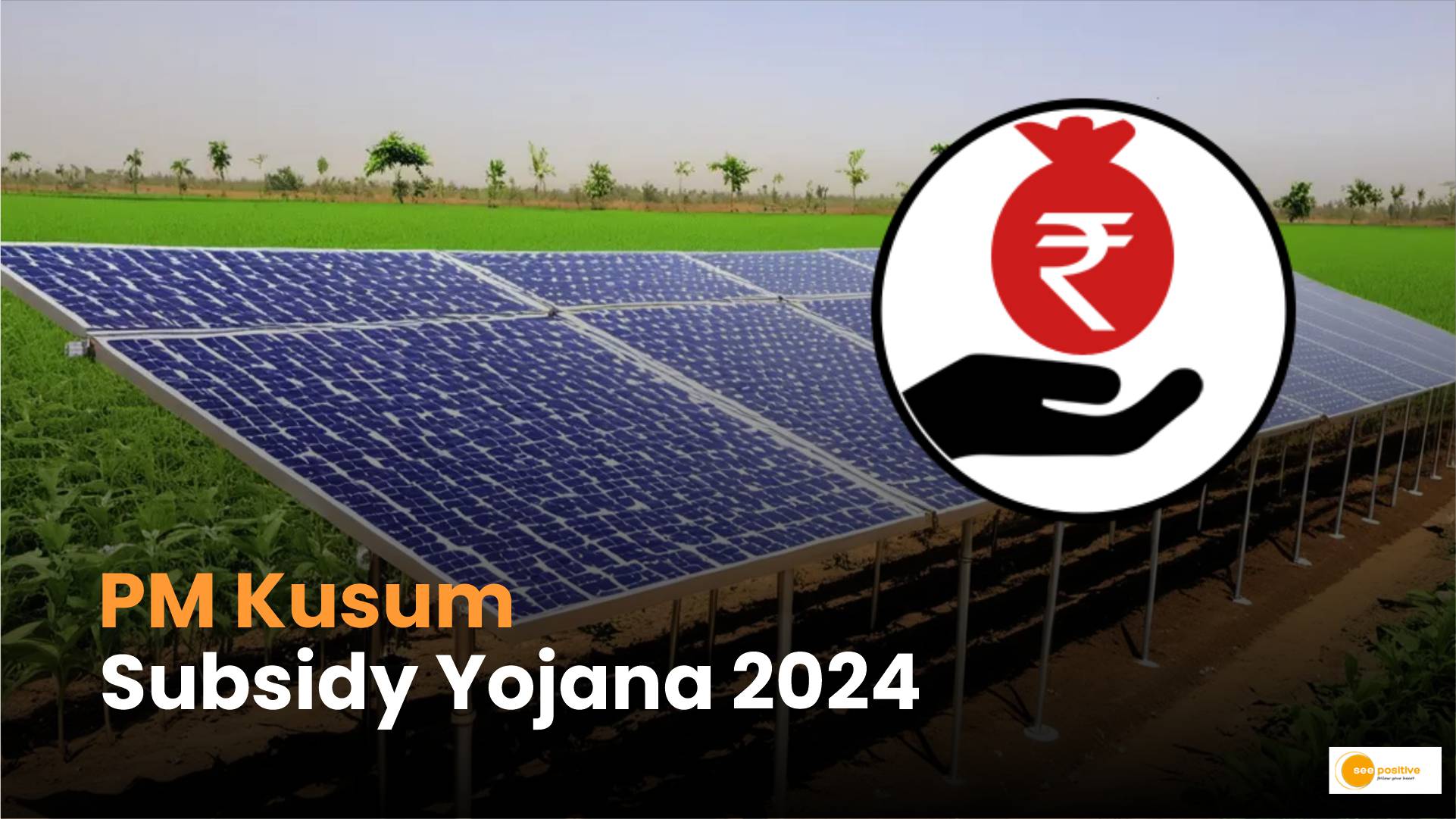India’s agricultural sector is the backbone of its economy, and ensuring sustainable growth in this sector is crucial for the nation’s development. One of the key initiatives aimed at achieving this goal is the PM KUSUM Yojana.
Launched by the Ministry of New and Renewable Energy (MNRE) in 2019, this scheme aims to promote the use of solar energy in agriculture, thereby reducing the dependency on conventional power sources and improving the livelihoods of farmers. In this article, we will delve into the details of the PM KUSUM Yojana, its benefits, and its impact on the agricultural sector.
What is PM KUSUM Yojana?
The PM KUSUM Yojana (Pradhan Mantri Kisan Urja Suraksha evam Utthaan Mahabhiyan) is a government initiative designed to harness solar energy for irrigation purposes and to provide reliable power supply to the agricultural sector. The scheme has three main components:
Component A: Setting up of 10,000 MW of decentralized ground-mounted grid-connected renewable power plants.
Component B: Installation of 20 lakh (2 million) standalone solar-powered agricultural pumps.
Component C: Solarization of 15 lakh (1.5 million) grid-connected solar-powered agricultural pumps.
Objectives of PM KUSUM Yojana
The primary objectives of the PM KUSUM Yojana are:
- Enhancing Energy Security: By promoting the use of solar energy, the scheme aims to reduce the dependency on conventional energy sources, ensuring a reliable and sustainable power supply for agriculture.
- Reducing Electricity Subsidy Burden: The use of solar pumps will help reduce the electricity subsidy burden on state governments, freeing up resources for other developmental activities.
- Doubling Farmers’ Income: By providing farmers with a reliable and cost-effective power source, the scheme aims to boost agricultural productivity and income.
- Promoting Sustainable Agriculture: The use of renewable energy in agriculture will contribute to environmental sustainability and reduce greenhouse gas emissions.
Benefits of PM KUSUM Yojana
1. Cost Savings for Farmers
One of the most significant benefits of the PM KUSUM Yojana is the reduction in energy costs for farmers. Solar-powered pumps eliminate the need for expensive diesel or electricity, leading to substantial cost savings. This allows farmers to reinvest their savings into other aspects of their farming operations, improving overall productivity and profitability.
2. Reliable and Uninterrupted Power Supply
Conventional power supply in rural areas can be unreliable, affecting agricultural activities. Solar-powered pumps provide a dependable source of energy, ensuring that farmers have access to a consistent water supply for irrigation, which is crucial for crop growth and yield.
3. Environmental Benefits
The shift from conventional energy sources to solar energy reduces the carbon footprint of agricultural activities. By promoting the use of clean and renewable energy, the PM KUSUM Yojana contributes to the reduction of greenhouse gas emissions and helps combat climate change.
4. Employment Generation
The implementation of the PM KUSUM Yojana is expected to create numerous job opportunities in the renewable energy sector. This includes jobs in the installation, maintenance, and operation of solar power systems, providing a boost to the rural economy.
5. Improved Water Management
Solar pumps can help improve water management practices in agriculture. By providing a reliable water source, farmers can adopt efficient irrigation techniques, such as drip irrigation, which can lead to better water conservation and increased crop yields.
Impact of PM KUSUM Yojana on the Agricultural Sector
Since its inception, the PM KUSUM Yojana has had a positive impact on the agricultural sector. Here are some key outcomes:
- Increased Adoption of Solar Pumps: Thousands of farmers have already benefitted from the installation of solar pumps under the scheme, leading to increased adoption of renewable energy in agriculture.
- Boost in Agricultural Productivity: With a reliable power supply, farmers can irrigate their fields more effectively, resulting in higher crop yields and improved productivity.
- Enhanced Farmer Income: The cost savings from reduced energy expenses and increased crop yields have contributed to a significant boost in farmers’ income.
- Sustainable Agricultural Practices: The scheme has encouraged farmers to adopt sustainable agricultural practices, contributing to environmental conservation and long-term agricultural viability.
Challenges and the Way Forward
Despite its numerous benefits, the PM KUSUM Yojana faces certain challenges. These include the high initial cost of solar pump installation, the need for technical training and support for farmers, and the integration of solar pumps with existing irrigation infrastructure. To overcome these challenges, the government and stakeholders need to:
- Provide Financial Support: Offering subsidies and financial incentives to farmers can help offset the initial installation costs of solar pumps.
- Technical Training: Providing technical training and support to farmers will ensure the effective use and maintenance of solar-powered systems.
- Infrastructure Development: Investing in the development of rural infrastructure, such as better grid connectivity and water management systems, will enhance the effectiveness of the scheme.
Conclusion
The PM KUSUM Yojana is a transformative initiative that has the potential to revolutionize India’s agricultural sector. By promoting the use of solar energy, the scheme addresses key issues such as energy security, cost savings, environmental sustainability, and farmer income. With continued support and effective implementation, the PM KUSUM Yojana can significantly contribute to the sustainable development of India’s agriculture, ensuring a brighter future for the nation’s farmers.


